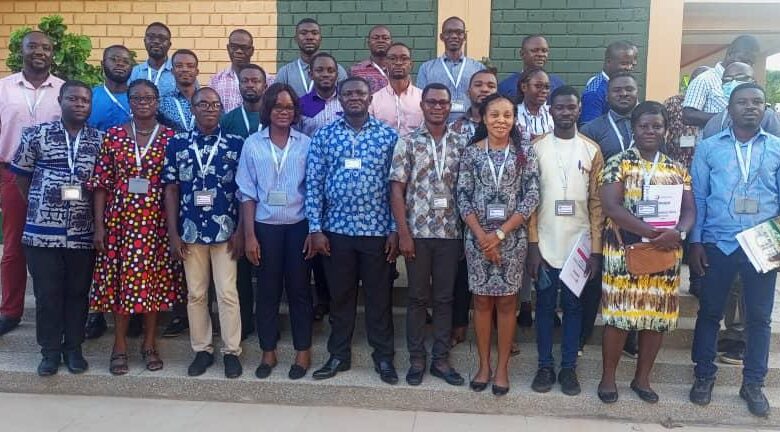Tamale served as the conclusion of a two-day training and field trip designed to educate journalists about genetically modified organisms (GMOs).
The purpose of the gathering, which included 30 journalists covering issues linked to agriculture, the environment, and related topics, was to raise awareness about the existence and safety of GMOs as well as the spread of the country’s resistant cowpea variety to pod borer.
Alliance for Science, in collaboration with the Ghana Agricultural Rural Development Journalists Association, the Open Forum on Agricultural Biotechnology in Africa, the Council for Scientific and Industrial Research, the Savannah Agricultural Research Institute (CSIR-SARI), and the International Institute of Tropical Agriculture, organized the event (IITA).
Senior Research Scientist Dr Richard Ampadu-Ameyaw observed that the cost of producing GMOs was high.
“Anyone trying to create GMOs in Ghana would have to get approval from regulatory agencies, including the Ministry of Food and Agriculture, the Food and Drugs Authority (FDA), the Ghana Standards Authority (GSA), and the Environmental Protection Agency (EPA),” he stated.
According to him, Ghana was developing the Biotechnology(Bt) Cowpea and Newestrice, two forms of GMO crops.
The GMO Bt cowpea was developed, according to Dr Ampadu-Ameyaw, to complement the work of non-GMO, noting that it would treat illnesses or pests that the non-GMO could not.
Dr Jerry Nboyine, Principal Investigator and an Entomologist at SARI stated during the field tour for the GMO Cowpea Trial that farmers had seen the trial and were confident in the crop.
He claimed that for each acre of land under cultivation, farmers should have harvested roughly 20 bags of the typical type, but they seldom produced more than 5 bags.
“So you can imagine that if they go from 20 to 5 bags, they are losing around 15 bags as a result of the insect known as the Maruka. Once the Bt cowpea is widely available, farmers will be able to boost their yields by four times, ensuring that there will be enough of the commodity for everyone to buy and that the high price of beans would undoubtedly decrease.
According to Dr Nboyine, the Planting for Food and Jobs program, which aimed to assist farmers in increasing output and income, would be enhanced by the Bt cowpea.
He stated that while Ghana produces 57,000 tonnes of cowpea annually, Ghana’s yearly need is expected to be 169,000 tonnes. He added that the difference was filled by importing from Burkina Faso, Nigeria, and Niger.
He refuted assertions that GMOs were chemical crops created to destroy people.
Ali Mohammed, a farmer at the trial site, expressed enthusiasm for the GM Bt cowpea and said that farmers were eagerly awaiting the crop’s approval so they could plant it.
He claimed that in order to combat pests and other related insects, they typically sprayed pesticides on the field around eight times. However, with the GM Bt cowpea, a farmer would only need to spray twice, saving them money.

